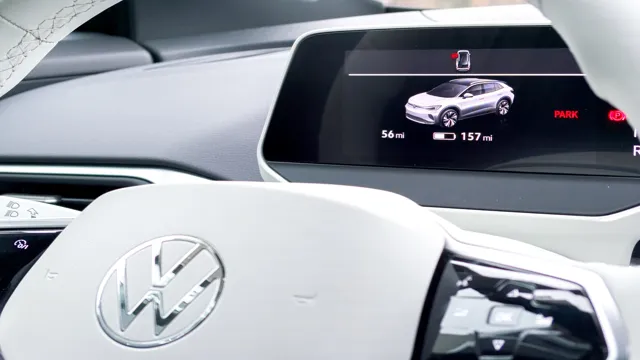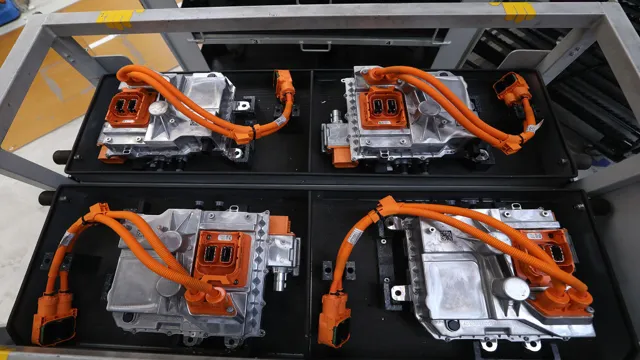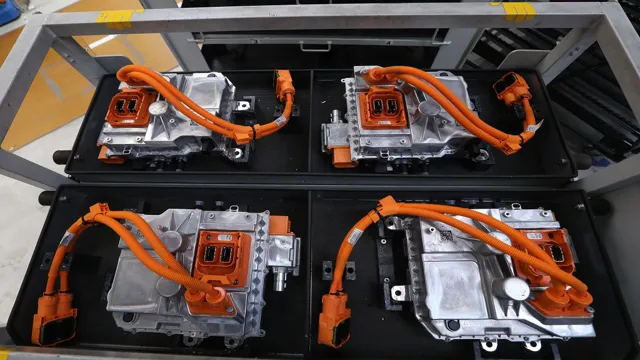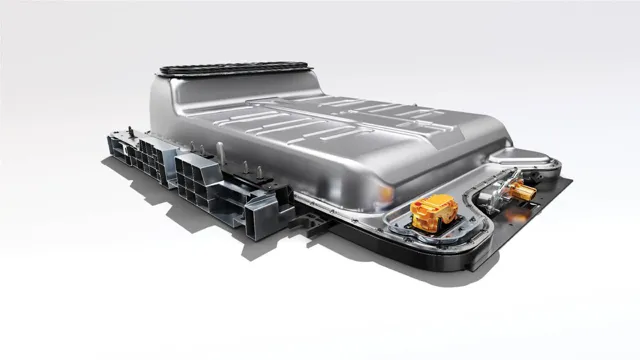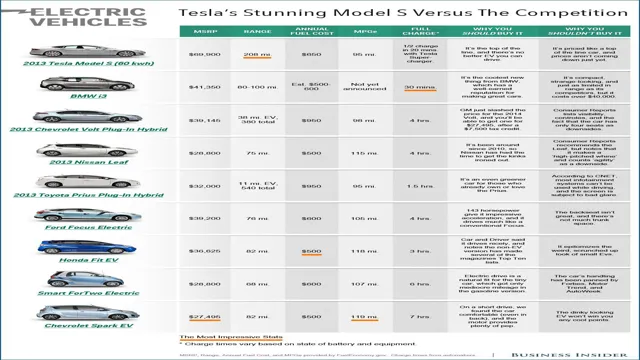Unleashing the Power of Electric Car Battery Amperage: A Comprehensive Guide
Electric cars are becoming increasingly popular as people look for more environmentally-friendly options to get around. However, one of the most important considerations when it comes to electric vehicles is the battery. Specifically, the amperage of the battery is a crucial factor that can affect everything from the range of the car to how fast it can charge.
In this blog, we’ll take a closer look at what amperage means in the context of electric car batteries and why it matters for anyone considering buying an electric vehicle. Whether you’re a seasoned electric car owner or just starting to explore the world of EVs, this blog has something for you. So sit back, relax, and let’s dive into the fascinating world of electric car battery amperage!
What is Battery Amperage?
When we talk about electric car batteries, the term “battery amperage” often comes up. So, what does it mean exactly? Battery amperage refers to the amount of current that an electric vehicle battery can deliver to power the car’s electric motor. In simpler terms, it’s a measure of how much electricity flows continuously through the battery.
Typically, higher amperage batteries are more desirable because they can deliver more power to the electric motor, allowing for quicker acceleration and better overall performance. It’s important to note that battery capacity and battery amperage are not the same things. Battery capacity measures how much energy a battery can store, while battery amperage measures how quickly the energy can be delivered.
Thus, a larger battery may have a higher capacity, but not necessarily a higher amperage. Overall, battery amperage is an important factor to consider when choosing an electric vehicle as it can impact its performance and driving range.
Definition of Battery Amperage
Battery amperage refers to the strength of electrical current that a battery can provide. It is measured in units of amps, where one amp represents the flow of one coulomb of electrical charge per second. Essentially, amperage indicates how quickly a battery can discharge its energy.
This measurement is important to consider when choosing a battery for a specific application, as different devices require different levels of amperage to function properly. A higher amperage rating means that a battery can provide more power, but it may also mean that the battery will drain more quickly. On the other hand, a lower amperage rating indicates that the battery can provide less power, but it may last longer before needing to be recharged.
Overall, understanding battery amperage is essential for selecting the right battery for your needs and ensuring that your devices operate as intended.

Why is Amperage Important?
Battery amperage refers to the amount of electrical current that a battery can deliver over a certain period of time. Basically, it’s a measure of how much power a battery can provide at any given moment. This is important because different devices and applications have different power requirements, so a battery with too low of an amperage might not be able to keep up with the demands of the task at hand.
For example, if you’re using a high-powered device like a laptop or power tool, you’ll need a battery with a higher amperage to keep it running smoothly. On the other hand, if you’re using a simpler device like a flashlight, a lower amperage battery will likely be sufficient. It’s important to match the amperage of your battery to the needs of your specific application to ensure optimal performance and longevity.
Average Electric Car Battery Amperage
When it comes to electric car batteries, amperage is an important factor to consider. The amperage rating of a battery is directly related to the amount of power it can deliver over a given period of time, which ultimately determines the range of the electric car. On average, electric car batteries have an amperage capacity between 100-200 amps, with some higher-end vehicles having over 300 amps.
This amperage capacity is the reason why electric cars have a longer range per charge and can accelerate faster than traditional gas-powered cars. It’s important to note that many factors, such as weather conditions and driving habits, can affect the performance of an electric car’s battery, so it’s essential to monitor battery life and charge regularly to ensure the best possible driving experience. Whether you’re driving a Tesla, Nissan Leaf, or any other electric car model, understanding the amperage of your battery is a crucial aspect of owning and operating an electric vehicle.
Data on Amperage of Popular Electric Cars
Electric car battery amperage Electric cars are rapidly gaining traction in the market as more people become environmentally conscious. One factor that is essential to understanding how these cars function is the battery amperage. The average electric car battery amperage is around 60 to 80 amps.
This amperage allows the battery to hold a significant amount of power to provide a suitable range on a single charge. However, the amperage differs from one electric car model to another, and some cars like Tesla can have much higher amperage. The amperage also determines the car’s charging speed as higher amps enable faster charging, essential when on long-distance drives.
Understanding the battery amperage is crucial for electric car owners to buy the right charging equipment and plan their driving routes accordingly. With increasing investments in electric vehicle technology, battery amperage is poised to increase, making electric cars even more efficient and suitable for daily use.
Factors that Affect Electric Car Battery Amperage
Electric car battery amperage can be influenced by a variety of factors, which can affect their overall performance. The average electric car battery amperage typically ranges between 50 and 100 amperes, depending on the make and model. One of the key factors that can impact battery amperage is the size of the battery.
Larger batteries typically have a higher amperage rating as they offer greater capacity to store power. Other factors that can impact amperage include the chemistry of the battery, the number of cells, and the rate of discharge. The type of charger used to charge the battery can also impact its amperage.
Fast chargers, for example, can put more strain on the battery and lead to a lower amperage rating over time. It’s important to consider all of these factors when selecting an electric car battery to ensure optimal performance and longevity. By knowing what affects battery amperage, you can make an informed decision when selecting the right battery for your electric vehicle.
How to Calculate Electric Car Battery Amperage
Calculating the amperage of an electric car battery is an important aspect of determining its overall performance. On average, an electric car battery amperage ranges from 50 to 300 amps, but this can vary depending on the size and type of the battery. To calculate the amperage, you need to know the voltage and capacity of the battery.
The voltage is the amount of electrical energy available in the battery, and the capacity is the amount of charge the battery can store. By multiplying these two values, you can find the amp-hour rating of the battery, which is the amount of current it can deliver in an hour. Understanding the amperage of your electric car battery can help you plan your trips and determine your vehicle’s range.
With this knowledge, you can make informed decisions about charging and battery maintenance to ensure optimal performance.
Benefits of High Battery Amperage
When it comes to electric car battery amperage, there are a lot of benefits to consider. A higher amperage means that the battery can charge more quickly, which can be especially useful when you are on the go and need to juice up your vehicle quickly. It also means that the battery can hold more power, which can translate into longer driving distances before needing to recharge.
Plus, a high-amperage battery can be more durable and withstand more stress, which can be useful over the long run as you put your electric car through its paces. Overall, a high-amperage electric car battery can make your driving experience smoother and more convenient while also being better for the environment. So if you are thinking about making the switch to an electric car, be sure to keep battery amperage in mind!
Longer Driving Range
One major benefit of having a high battery amperage in your electric vehicle (EV) is the longer driving range it provides. The battery amperage refers to the amount of electric current that a battery can deliver. This means that a higher battery amperage can result in a longer-lasting charge for your vehicle.
A longer driving range can be especially beneficial for people who frequently take long trips or commute long distances. With a higher battery amperage, you can travel further without having to stop and recharge as often. This not only saves time but also makes long-distance travel more convenient and less stressful.
Additionally, a longer driving range can alleviate range anxiety, which is the fear of running out of charge before reaching your destination. In conclusion, having a high battery amperage can greatly improve the driving experience and convenience for EV owners by providing a longer driving range.
Faster Charging Times
One of the biggest benefits of high battery amperage is faster charging times. When your device has a battery with a higher amperage, it means that it can take in a larger amount of power in a shorter amount of time. This can be a game-changer for those who are constantly on-the-go and need their devices to charge quickly.
With faster charging times, you can spend less time tethered to an outlet and more time using your device the way you want to. Plus, when you’re in a rush and need your battery to charge quickly, a higher amperage can be a lifesaver. So whether you’re a busy professional, a student, or just someone who doesn’t want to waste time waiting for their battery to charge, a high battery amperage can be a valuable investment.
Conclusion
In conclusion, the amperage of an electric car battery is like the volume of a stereo system – it determines the power and performance of the vehicle. Just like how cranking up the volume on a favorite song can make it more enjoyable, increasing the amperage of an electric car battery can make it more powerful and efficient. So next time you’re cruising in your electric car, remember that the amperage of your battery is responsible for the zoom zoom in your ride!”
FAQs
What is electric car battery amperage?
Electric car battery amperage refers to the rate at which electrical current flows through the battery. It is measured in Amperes (A).
How does electric car battery amperage affect the car’s performance?
Higher amperage allows the car to accelerate faster and have a higher top speed. The amperage also determines how quickly the battery can charge.
What is the average amperage for electric car batteries?
The average amperage for electric car batteries ranges from 100 to 200 amperes, but high-performance electric cars can have amperage as high as 500 or more.
How does temperature affect electric car battery amperage?
High temperatures can increase the amperage output of the battery, while low temperatures can decrease it. This is because the rate of chemical reactions in the battery that generate power varies with temperature.
